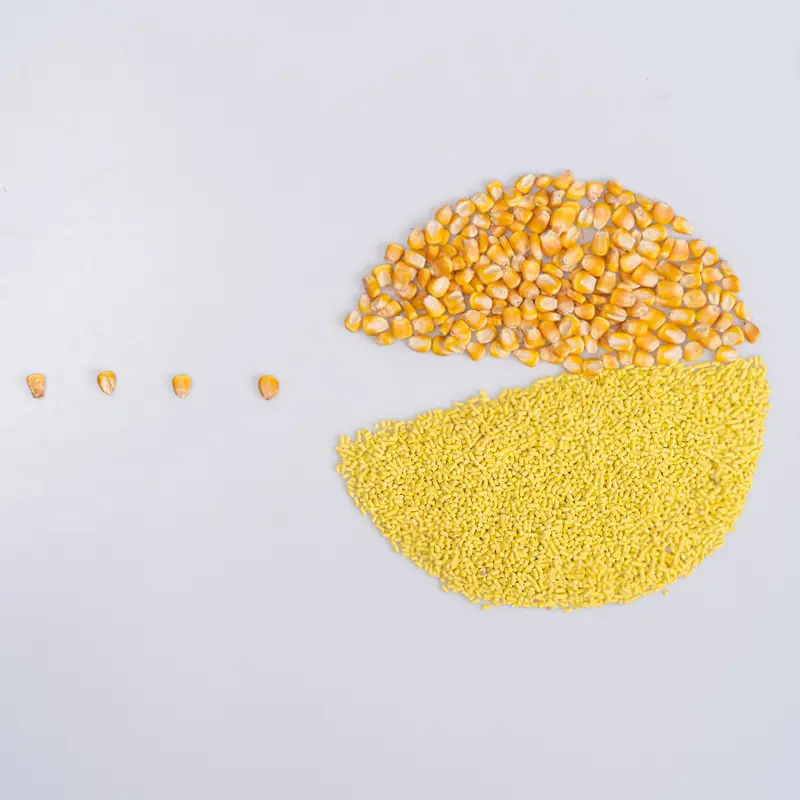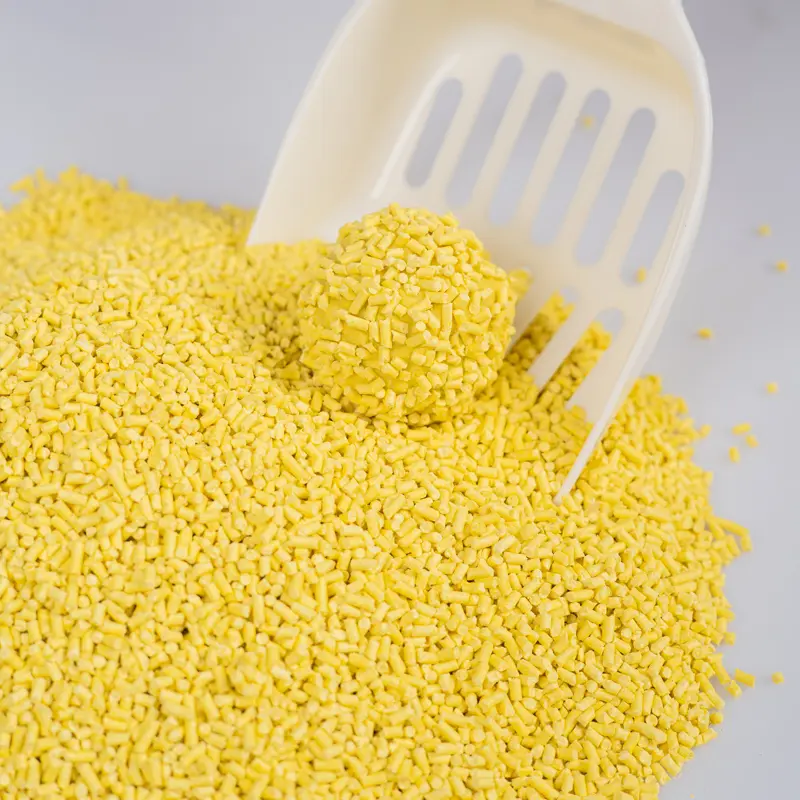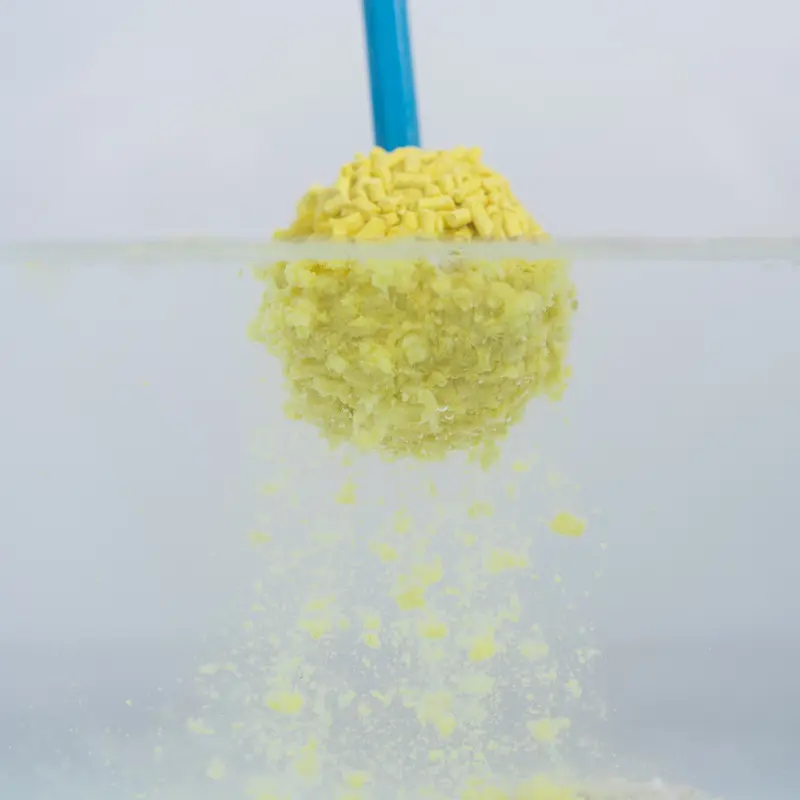
Corn cat is a cat litter created from corn kernels. It’s an substitute for traditional clay-based cat litters and is considered more beneficial to our environment by a few cat owners. Corn litter is manufactured out of natural, renewable resources, that makes it a beautiful choice for those concerned about environmentally friendly impact of litter disposal.In recent year, it’s becoming more and more popular in market, due to its high absorption, hard clumps and good odor controls, just about all have their cons, Let’s talk about its advantange and disadvantage.
________________________________________
Precisely what is Corn cat?
Corn litter, also known as corn-based cat, is a kitty made primarily from corn kernels or corn-based materials. It’s an alternative to traditional clay-based or silica gel cat litters.
Corn cat is really a bio-based kitty product derived primarily from corn kernels or corn-based materials. It stands apart available in the market because environmentally friendly attributes and growing entice consumers seeking sustainable pet care options.

From a commercial standpoint, corn cat litter offers several key selling points. It is usually marketed as being a natural, biodegradable, and renewable substitute for traditional clay-based or silica gel cat litters. This eco-friendly appeal resonates well with environment friendly pet owners, driving its increasing popularity from the pet care industry.
The product or service boasts effective odor control and clumping properties much like conventional litters, forming clumps upon connection with moisture for easier waste removal. Additionally, its dust-free nature interests consumers concerned about respiratory issues in their pets or households.
Wholesale distributors recognize the need for highlighting these traits to retailers, emphasizing the product’s benefits in marketing campaigns and purchasers pitches. They aim to educate retailers about the benefits of corn litter, definitely advertisements and information to effectively communicate these advantages of potential customers.
Furthermore, from a business perspective, corn kitty presents opportunities for retailers to diversify their product offerings and focus on the preferences of dog owners seeking more natural and sustainable ways for their pets. It enables retailers to make use of an expanding market segment centered on eco-conscious pet maintenance systems.
As with all product, wholesalers and retailers continually assess consumer feedback, market trends, and product performance to be sure they meet customer demands and maintain a competitive edge within the pet care industry.
What are the Pros and Cons of corn cat?
Pros:
• Biodegradable:
Corn kitty is typically biodegradable and made from renewable resources, which can be attracting environment friendly cat owners.Its main materials are corn flour,corn starch and pea fibre, which are all natrual and plant-based.
• Clumping Properties:
Corn-based litters have clumping abilities, making it easier to scoop out soiled litter and make the cat litter box clean.Our food-grade guar gum may make corn kitty clumps well and non-toxic on your cat’s health.
• Low Dust:
Corn cat litter will produce less dust in comparison with clay-based litters, that may be beneficial for cats and their owners, particularly if your cat has respiratory sensitivities. Corn litter is manufactured out of the best quality materials, what’s more, it not easy to produce the dust at the end of cat litter box usually when you use it.
• Natural and Non-Toxic:
Corn litter is manufactured out of natural corn kernels and is also generally considered safe for cats. It’s free of synthetic chemicals and fragrances that some traditional litters might have.
• Odor Control:
As corn kitty can clumps hard, it may be effective at controlling odors, helping maintain a fresh-smelling environment.The corn materials also can help remove the odors.

“From this picture we can easily begin to see the clumps are tight, it could be coverd the odors and simple to get scooped out from litter box”
Cons:
• Tracking:
Corn cat might be susceptible to tracking, meaning it could stay with your cat’s paws and turn into spread around your own home.But if you grab an appropriate height and width of pellets, it’ll be hard to become brought out of cat litter box.
• Scooping and Clumping:
While it clumps well, the clumps can sometimes be softer much less robust compared to those formed by clay litters, causing them to be more difficult to scoop. Our corn cat with the best guar gum,that may be result in the clumps are more tight than usual corn cat and not simple to be broken.
• Attractiveness to Pests:
Natural scent of corn may attract insects, especially in humid or warm environments. Proper storage and hygiene are crucial to avert this issue.
• Cost:
Corn litter may be more expensive than traditional clay litters, which can be an option for many cat owners.

“This picture showed the corn kitty can be dissolved into water rapidly, so that it might be flushed into your toilet”
OEM (original equipment manufacturer) corn litter and wholesale corn kitty are a couple of different business models, with each having some benefits and drawbacks.
OEM VS Wholesale corn kitty
OEM Corn Cat (Original Equipment Manufacturer):
Pros
Brand autonomy: It is possible to create your own brand image by printing your personal brand and logo around the corn kitty packaging.
Low market risk: There’s no need to formulate corn kitty yourself because existing products are already on the market.
Concentrate on advertising and marketing: You’ll be able to focus on marketing and sales without spending energy and resources on production.
Potential for customization: Corn kitty has a certain degree of customization and can be adjusted and modified as outlined by customer needs.
Cons
Low income: Since corn kitty is produced by having a alternative party, returns might be lower. However, it saves the expense of building a factory, management costs, etc. Using this perspective, it improves profit margins.
Not enough uniqueness: Corn kitty may lack uniqueness because other brands may use the identical OEM manufacturers to create similar products. Therefore, it is possible to talk to us the parameters of customized corn kitty in order to avoid homogeneity and expense competition.
Dependence on external suppliers: Reliance upon external suppliers is high and may even be affected by the supplier’s production capacity and quality control.
Wholesale corn litter:
Pros
Higher Profits: Higher income can be carried out by wholesale corn kitty for the reason that production cost of corn cat might be lower.
Greater Brand Control: May have greater treating brand image and market positioning because Corn Cat Litter is produced and sold directly on its own.
Flexibility: Product specifications, packaging, etc. can be more flexibly adjusted to meet market demand.
By wholesale selling corn kitty off their companies’ brands, you don’t need to invest much cash during the early stage.
Cons
High initial cost: higher capital investment is essential for production equipment, unprocessed trash and human resources.
Market risk: Market risks need to be borne, including poor gross sales, inventory backlog along with other issues.
Production management challenges: Challenges in managing production processes, qc, etc. may necessitate certain expertise and experience.
Split into somebody else’s brand, you’re marketing and publicizing it for someone else.
Therefore, choosing OEM corn cat litter or wholesale corn cat litter is dependent upon your situation and preferences in the company. If a company would like to focus more on marketing and sales and is willing to accept some supply chain management challenges, then choosing an OEM could be appropriate. And when the organization really wants to better control the manufacturer image and get higher profit margins, and is also ready to invest more income and resources in production, then wholesale may be more suitable.
As with every cat type, it is critical to monitor your cat’s reaction when transitioning to an alternative litter. While corn cat is generally safe, some cats could have individual sensitivities or allergies. If the cat experiences discomfort or medical issues after switching to corn litter, discontinue use and seek advice from your vet.
Ultimately, selecting cat litter depends upon your cat’s preferences, your environmental concerns, plus your specific needs as a animal owner.Gelin Town Pet create a huge selection corn kitty, their product may be submitted for the test.When you have any interest, please call us.
To read more about Custom Tofu Clumping Cat Litter take a look at this useful web site

